University Research Agenda
Consistent with its vision of a strong research and its core values of innovation, creativity and agility, the University of Saint Louis (USL) is steadfast in her pursuit of knowledge generation for the development of every Louisian, the community, the church and the society. This, it does, as it delivers its trilogy of function of instruction, research and community engagement. It is hence committed to promote and ensure quality education in the country and the world.
As proof of its commitment to quality education, USL ensures relevant and responsive education through knowledge sharing (Instruction function), knowledge generation (Research function), and knowledge application (Community Engagement-Service Learning, Extension and Outreach function).
USL, in her pursuit of quality and excellence, puts premium to research as both its anchor and rudder for all its development efforts. It believes that it should give priority to the systematic pursuit of quality in research for students, teachers and administrators. It also believes that it should be abreast with the different developments in education and more so in the society as it is expected to play its role of generating scientific knowledge and technological know – how and the training of highly skilled and globally competitive workforce.
Cognizant of the different developments, USL endeavors to continually strengthen the culture of research in the institution. Consistent with its Strategic Plan 2020, a New Research Agenda 2017-2020 was thus revised to become relevant.
The USL Research Agenda is anchored on the new vision-mission of the University, inclusive of the core values. This is further solidified with the University Research and Development Center’s (URDC) vision-mission. The USL vision-mission and the URDC vision-mission provide the anchor for all research efforts in the University. Moreover, the said Research Agenda is aligned with the research agenda of the following agencies/institutions: 1) The Commission on Higher Education (CHED) National Higher Education Research Agenda (NHERA); 2) The Department of Science and Technology (DOST); 3) The Department of Health (DOH); 4) National Economic Development Authority. Likewise, it is also aligned with the research agenda of the two (2) consortia where USL is a member: 1) The Cagayan Valley Industry and Energy Research and Development Consortium (CVIERDEC); and 2) The Cagayan Valley Health Research and Development Consortium (CVHRDC).
Overarching the USL Research Agenda Framework is the generation and sharing of knowledge in support of community engagement activities. In consideration with various developments in education and society, and conscious of the mandates of government and institutional partners, the new Research Agenda are advanced into six general themes categorized as follows:

Disaster Risk Reduction and Management. The reduction of the damage caused by natural hazards like earthquakes, floods, droughts and cyclones, through an ethic of prevention
Sustainable Development. Meeting the needs of the present without compromising the ability of future generations to meet their own needs.
Poverty Alleviation. The lifting of people out of poverty through both economic and humanitarian means.
Local Knowledge. The collection of facts and relates to the entire system of concepts, beliefs and perceptions that people hold about the world around them. This includes the way people observe and measure their surroundings, how they solve problems and validate new information. It includes the processes whereby knowledge is generated, stored, applied and transmitted to others.
Disciplinal and Multi-Disciplinal Studies. The generation of knowledge based on the different school disciplines or programs and integration of the same among disciplines or programs.
Institutional Studies. The knowledge generation along broad category of work done in the university to inform campus decision-making and planning in areas such as but not limited to admissions, financial aid, curriculum assessment, enrollment management, staffing, student life, finance, facilities, athletics, and alumni relations.
Aware of the fast developments in the different realms of education and development, this Research Agenda can be amended upon consultation with the Research Council that spearheads the promotion of research in the entire University.
Research Agenda
The Center is focused on generating knowledge on the researchable areas on business research and development to further elevate business activities towards a more sustainable business environment. It is also responsible in conducting researches to improve the current practices and activities along areas of business, accounting and hospitality.
The Center is responsible for generating evidence-based researches on the following key themes: Responsible Management Education, Business Management and Innovation, Sustainable Business Practices, Corporate Social Responsibility, Hospitality and Tourism Management and Multi-stream Management Approaches.

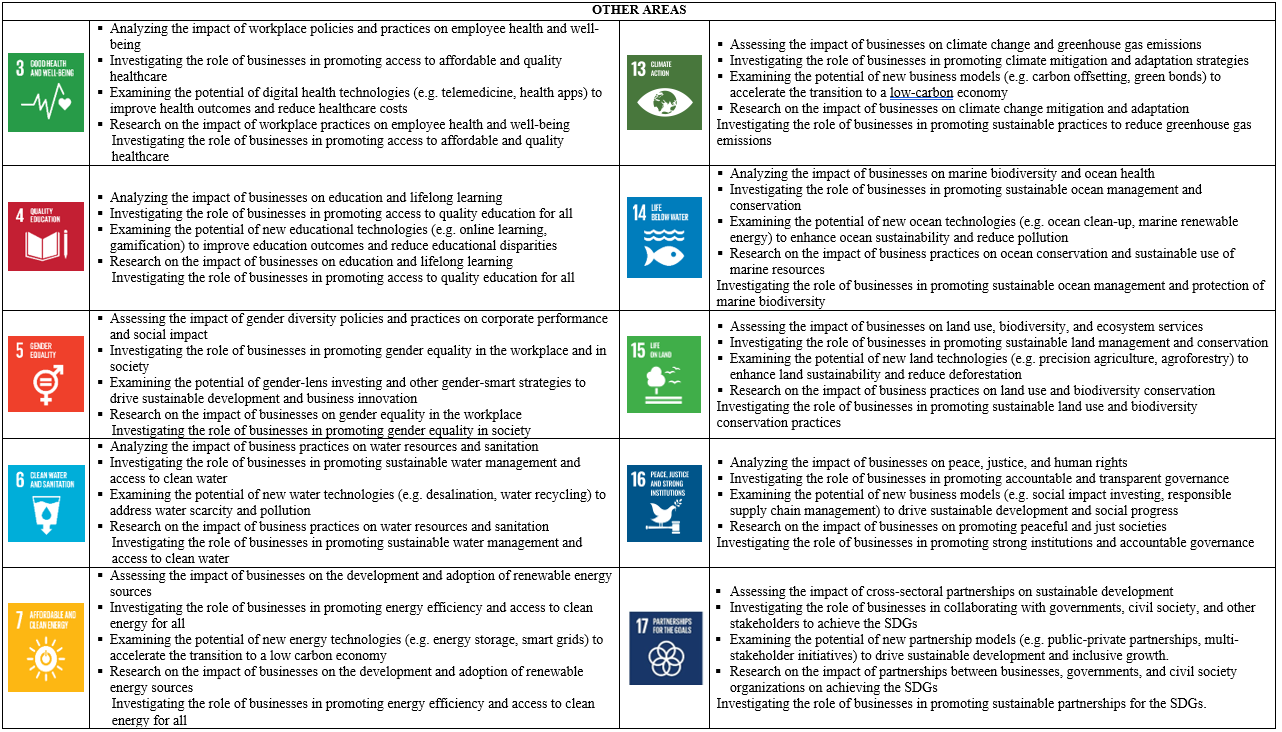
The Center is responsible in advocating research and development activities in the fields of engineering, architecture and information technology. It shall serve as the hub for collaborative studies for the design, development and implementation of innovative ideas that shall lead to its utilization for community development.
The Center’s key themes are (1) Construction, Geoscience, Innovative Technologies, Energy, and Computer Science. The research priorities along these themes are presented in the table below.
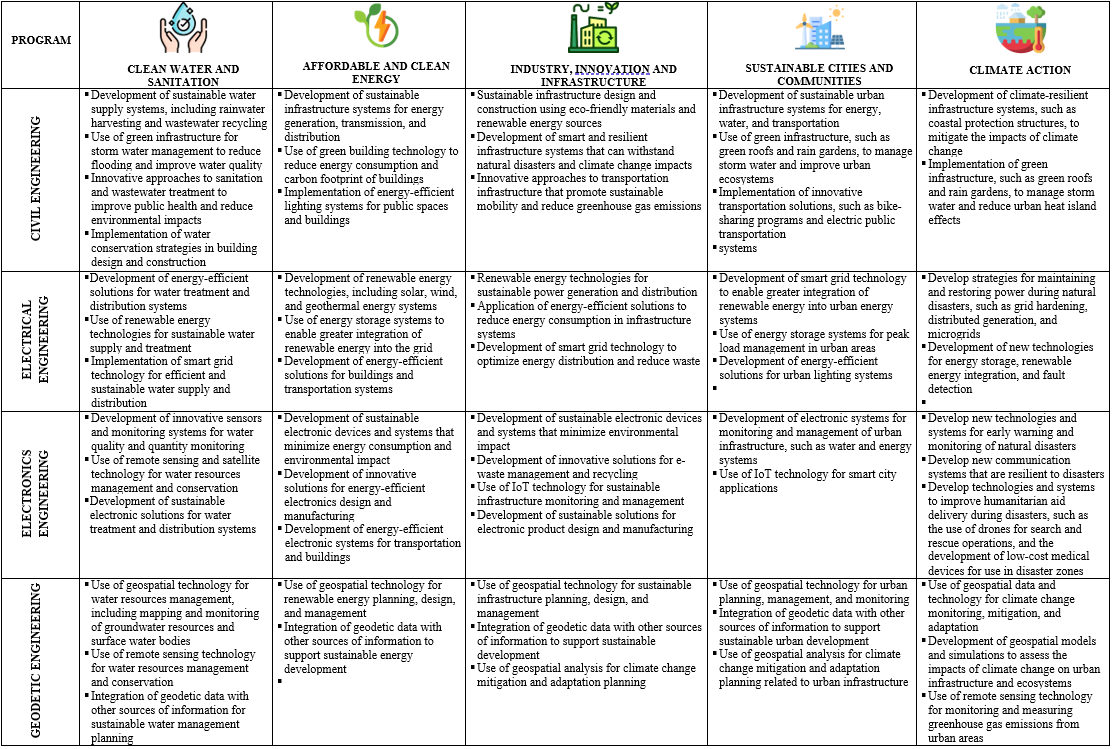
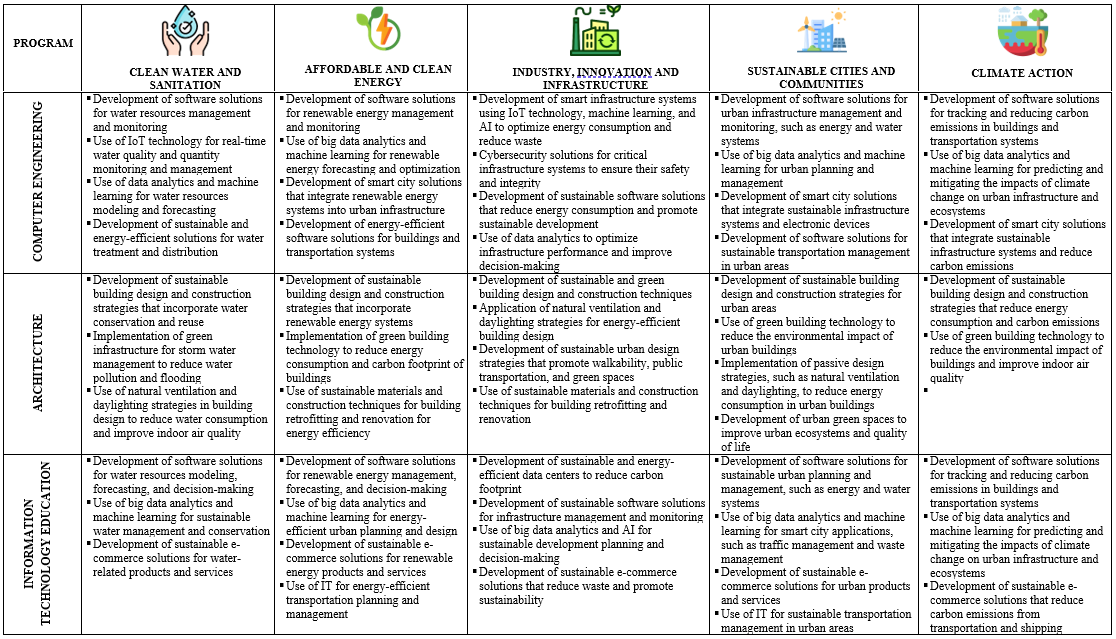
The Center is responsible in the promotion of social and environmental change to the community through research, education and experiential learning in order to strengthen the capacity of individuals and communities in providing innovative solutions to complex social problems.
As the primary research arm of the School of Education, Arts and Sciences, the Center encompasses four major research themes which include Educational Research and Innovation, Social Sciences, Religion, CICM and Louisian Spirituality, and Local Knowledge and Cagayano Development.
| SDGs | THEMES | PRIORITY AREAS |
|---|---|---|

|
EDUCATIONAL RESEARCH AND INNOVATION |
• Outcomes-Based Education • Educational Psychology • Curriculum and Instruction • Alternative Delivery Systems • Internationalization of Education • Educational Leadership and Management • Action Research in Education • Basic and Higher Education • Special and Inclusive Education • ICT Integration in Instruction |
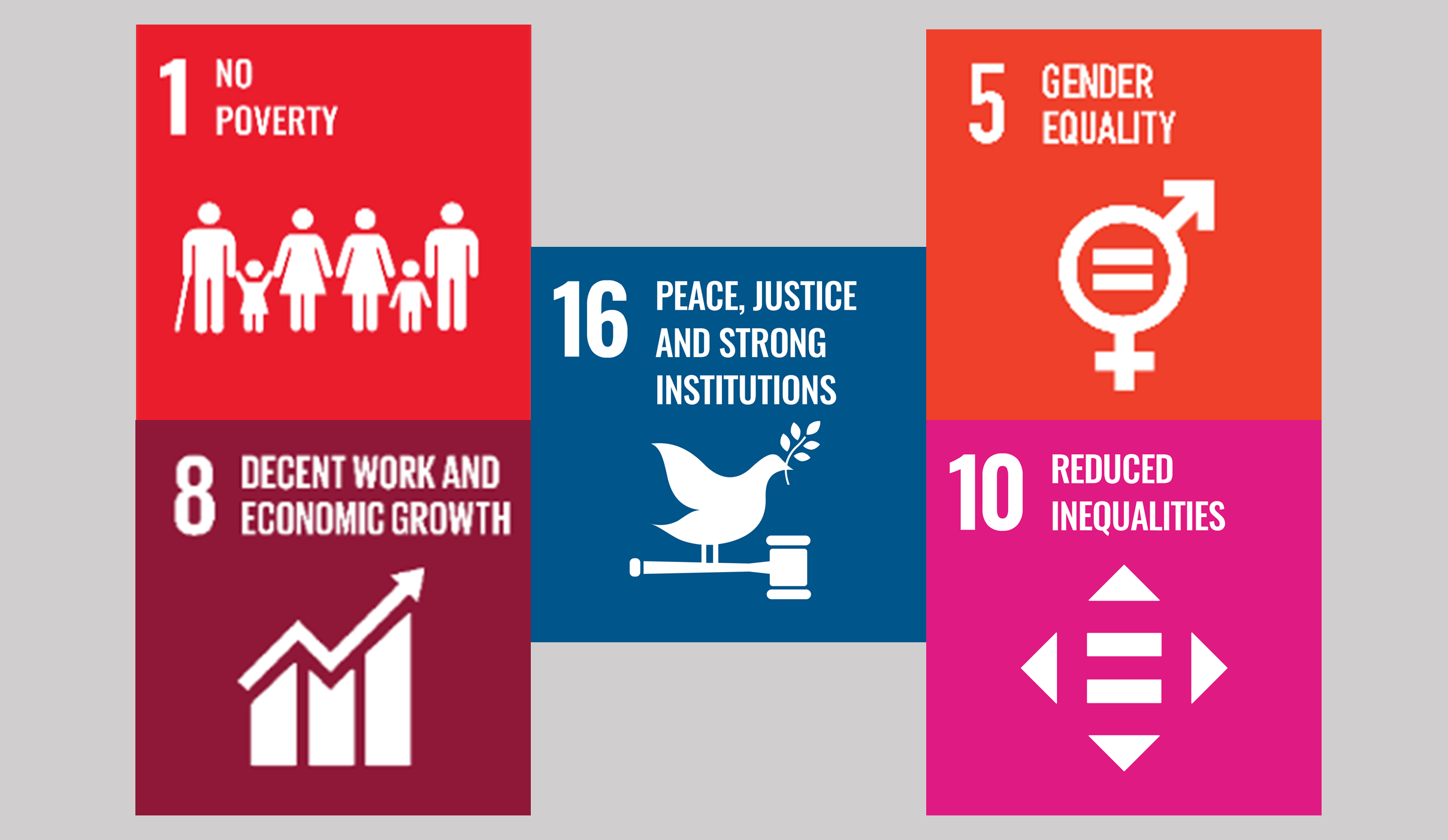
|
SOCIAL SCIENCES |
• Politics and Governance • Rural and Urban Sustainable Development • Human Rights and Social Justice • Psychology and Behavioral Studies • Environmental Studies • Poverty Index and Alleviation |
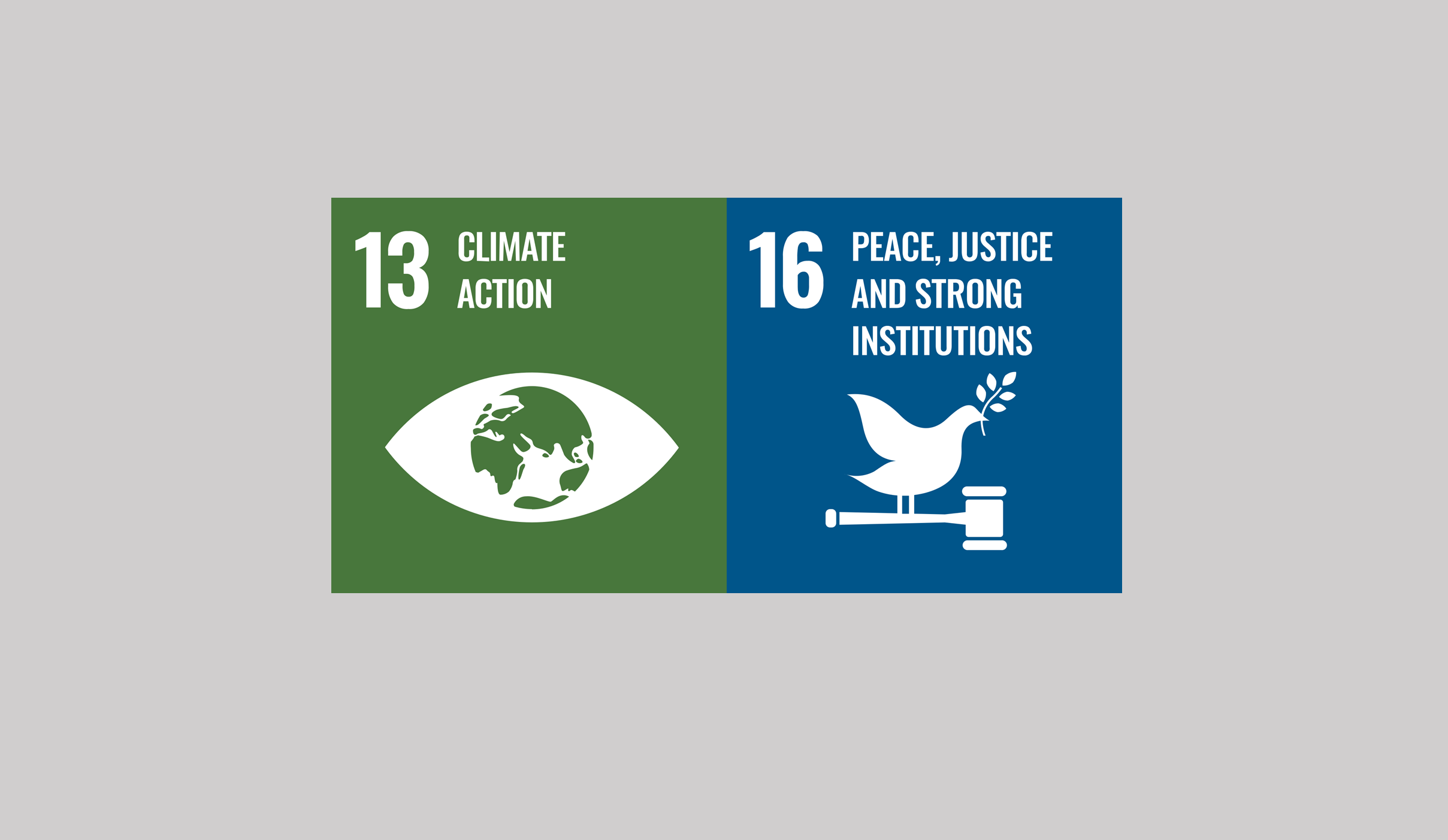
|
RELIGION, CICM AND LOUISIAN SPIRITUALITY |
• Religious Education • CICM Studies • Justice, Peace, and Integrity of Creation • Ecumenism and Interreligious Dialogue |

|
LOCAL KNOWLEDGE AND CAGAYANO DEVELOPMENT |
• Cultural Studies and Local History • Indigenous and traditional arts • Folk literature and Language Corpus • Indigenous Disaster Risk Reduction and Management • Indigenous Peoples Education • Cagayano Studies and Development • Ethnobiological Studies |
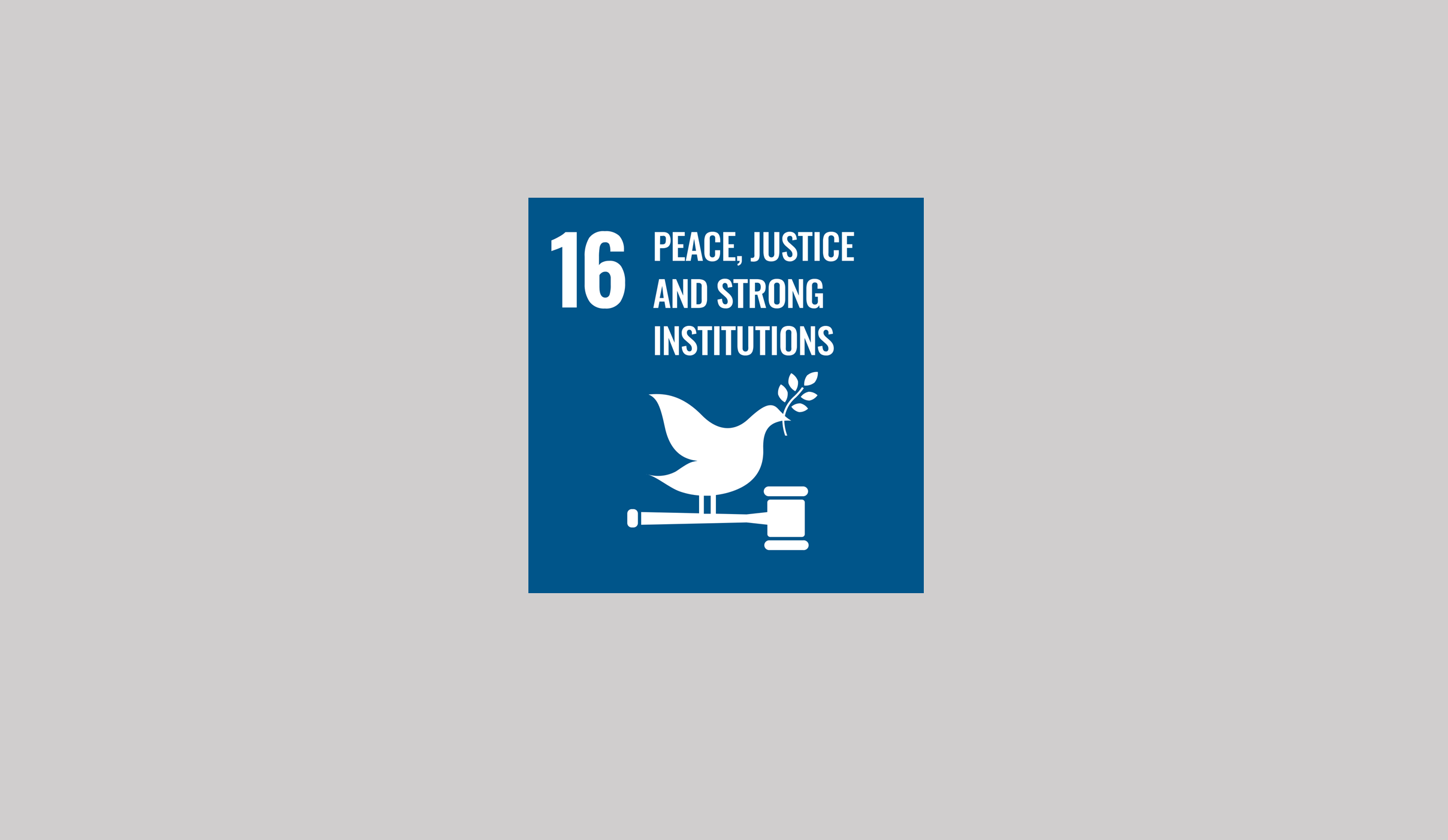
|
CRIMINOLOGY AND PUBLIC SAFETY |
• Criminal Justice System • Justice and Human Rights • Law Enforcement Administration • Forensic Science • Police-Community Partnership and Development • Correctional Administration • Public Safety Services • Crime Prevention • Juvenile Delinquency • Drug Abuse |
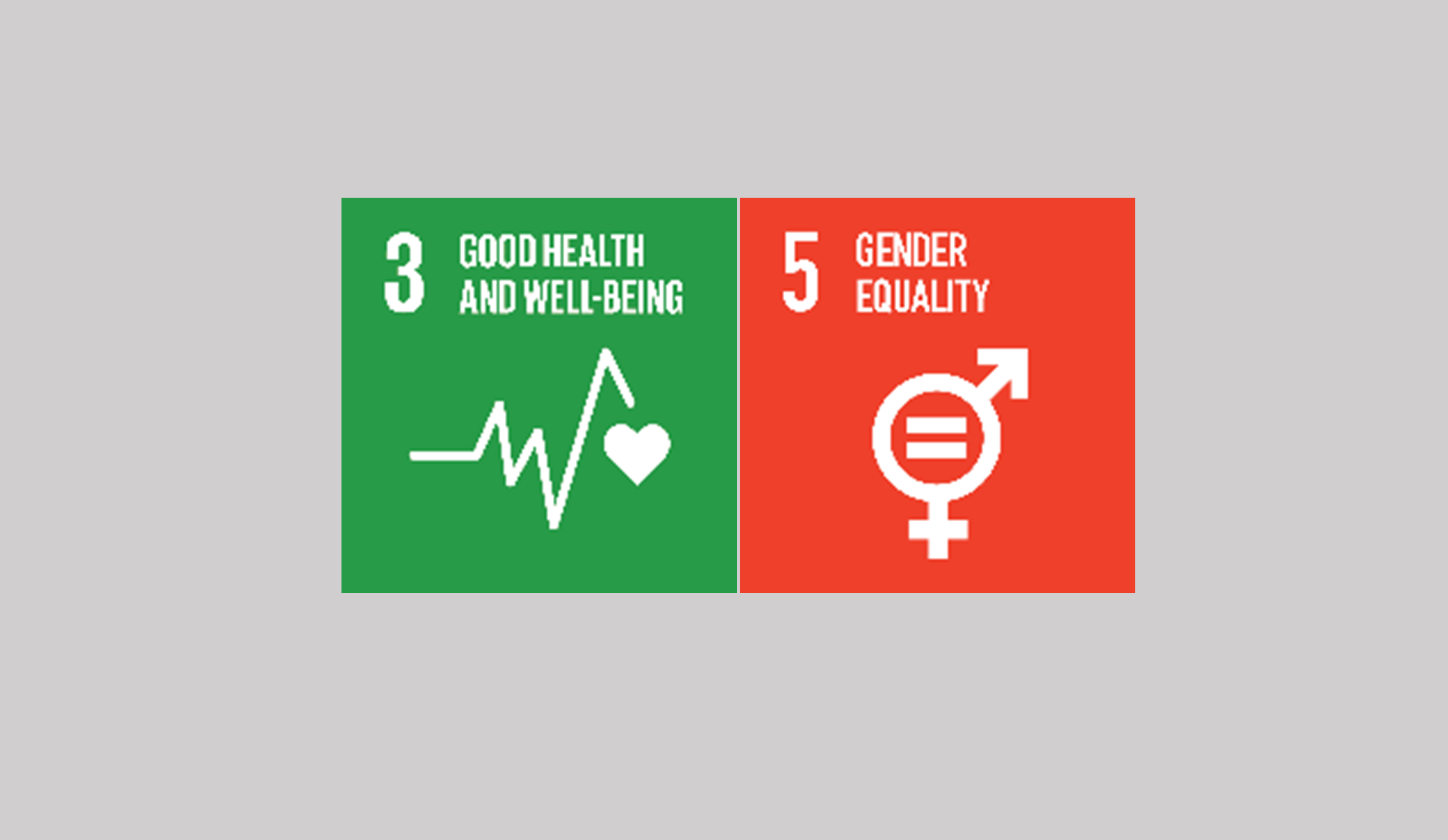
|
PSYCHOLOGY AND BEHAVIORAL STUDIES |
• Mental Health and Wellness • Justice and Human Rights • Gender and Development • Social Psychology • Guidance and Counseling • Personality Development • Filipino Psychology • Human Behavior • Developmental Psychology • Industrial Psychology |
The Center is responsible for the promotion of scientific and technological research to generate knowledge applied to solving priority health problems. Studies shall focus on the integration of basic, clinical, and public health research to provide for scientific, innovative, and competitive development in the region and the country at large.
| Nursing | ||
|---|---|---|
| SDGs | THEMES | PRIORITY AREAS |
 | Maternal and Child Health | Assessment of factors and evaluation of measures for improvement of maternal and infant mortality rate |
| Mental Health | Effectiveness, assessment, management, and evaluation of various existing mental health interventions in the country, including the development of guidelines for community-based MH services.
Effective interventions or services for special populations (i.e. elderly, children, women, etc.) | |
| Infectious Diseases specifically (HIV/AIDS, TB, Hepatitis, Malaria, Neglected Tropical Diseases and Water-Borne Diseases) | Development and evaluation of innovative approaches in prevention, diagnosis and management of emerging and re-emerging infectious diseases
Epidemiological researches (e.g., incidence/prevalence, outbreak research) involving mapping of arbovirus outbreaks and establishment of databases and surveillance systems in urban and rural areas Disease characterization and investigation of public health and clinical implications Research on local burden of disease and how to reduce it, and factors affecting transmission of infectious diseases Development of strategies for early detection, early intervention and/or prevention of transmission of infectious diseases | |
| NCDs and substance abuse | Development and/or evaluation of interventions for improvement of quality of life of people with NCDs (Research on equity in health, Improving access to healthcare, Behavioral and sociocultural studies, Preventive interventions and Patient support)
Development of preventive interventions and evaluation thereof in the prevention of CVD, diabetes, cancer or COPD | |
| Anti-Microbial Resistance | Research on AMR and AMR detection | |
| Universal Health Coverage | Health financing- risk reduction
Access to medicine and technology Human resources for health | |

|
Perinatal nutrition and undernutrition in adolescent and older women Undernutrition in infants and children below 5 years Anemia in pregnant women and women in reproductive age Nutrition assessment of individuals with physical and mental/intellectual disabilities Assessment of prevalence and efficacy of fad diets Interventions for the management of malnutrition in relation to infectious diseases |
|

|
Characterization of diseases whose incidence is directly affected by climate change. | |
| MEDICAL TECHNOLOGY | ||
|---|---|---|
| SDGs | THEMES | PRIORITY AREAS |
 | Infectious Diseases specifically (HIV/AIDS, TB, Hepatitis, Malaria, Neglected Tropical Diseases and Water-Borne Diseases) | Epidemiological researches (e.g., incidence/prevalence, outbreak research) involving mapping of arbovirus outbreaks and establishment of databases and surveillance systems in urban and rural areas
Characterization of arbovirus infection including investigation of public health and clinical implications Epigenetics and biomarker studies of non-communicable diseases Bio-banking of clinical samples for research |
| NCDs and substance abuse |
Validation of biomarkers in detection platforms for cancer, diabetes and cardiovascular diseases
Test kits for early detection of risks in non-communicable diseases, and for prevention and better management of these diseases such as hereditary gene testing kits important for prognosis Remote diagnostics for priority non-communicable diseases. | |
| Anti-Microbial Resistance | Biotechnological innovations research for prevention of AMR | |
| Universal Health Coverage | Health financing- risk reduction
Access to medicine and technology Human resources for health | |

|
Qualitative and/or quantitative evaluation of the population intake of selected chemical hazards in the Filipino diet
Qualitative and/or quantitative evaluation of the population intake of microbiological hazards/pathogens via food Research on the development of technologies and approaches for the prevention, traceability, and outbreak response to diseases related to food safety |
|

|
Water sanitation and Hygiene
Wastewater management |
|

|
Biomedical devices that can easily be used during pandemics, such as but not limited to:
o Masks and respirators o Ventilators and other ventilation related devices o Innovative personal protective equipment (PPEs) for health emergency workers/ responders |
|
| PHARMACY | ||
|---|---|---|
| SDGs | THEMES | PRIORITY AREAS |
 | Infectious Diseases specifically (HIV/AIDS, TB, Hepatitis, Malaria, Neglected Tropical Diseases and Water-Borne Diseases) |
Development, evaluation and characterization of novel or repurposed therapeutic agent/s and modalities against emerging and re-emerging diseases
Development of drug delivery systems for improved or targeted delivery and controlled release of therapeutic agents against emerging and re-emerging diseases Development of bioinformatics protocols for virology studies, and vaccine design and evaluation |
| NCDs and substance abuse |
Development, evaluation and characterization of novel or repurposed therapeutic agent/s and modalities against NCDs
Development of drug delivery systems for improved or targeted delivery and controlled release of therapeutic agents against emerging and re-emerging diseases | |
| Anti-Microbial Resistance |
Research on AMR and AMR detection
Development of strategies to prevent AMR with consideration of principles of One Health | |
| Universal Health Coverage | Health financing- risk reduction
Access to medicine and technology Human resources for health | |
| Cosmeceuticals |
Herbal cosmetic products like face masks, serums, sunscreens, lotions
Herbal soaps: scabicidal, antifungal or anti-acne Herbal insect repellants | |

|
Studies on characterization, safety assessment, efficacy, and product development of indigenous fruits and vegetables (root crops, local berries, seaweeds, underutilized fruits, local citrus fruits) | |

|
Researches on ready-to-use therapeutic food (RUTF) and food for disaster emergencies | |